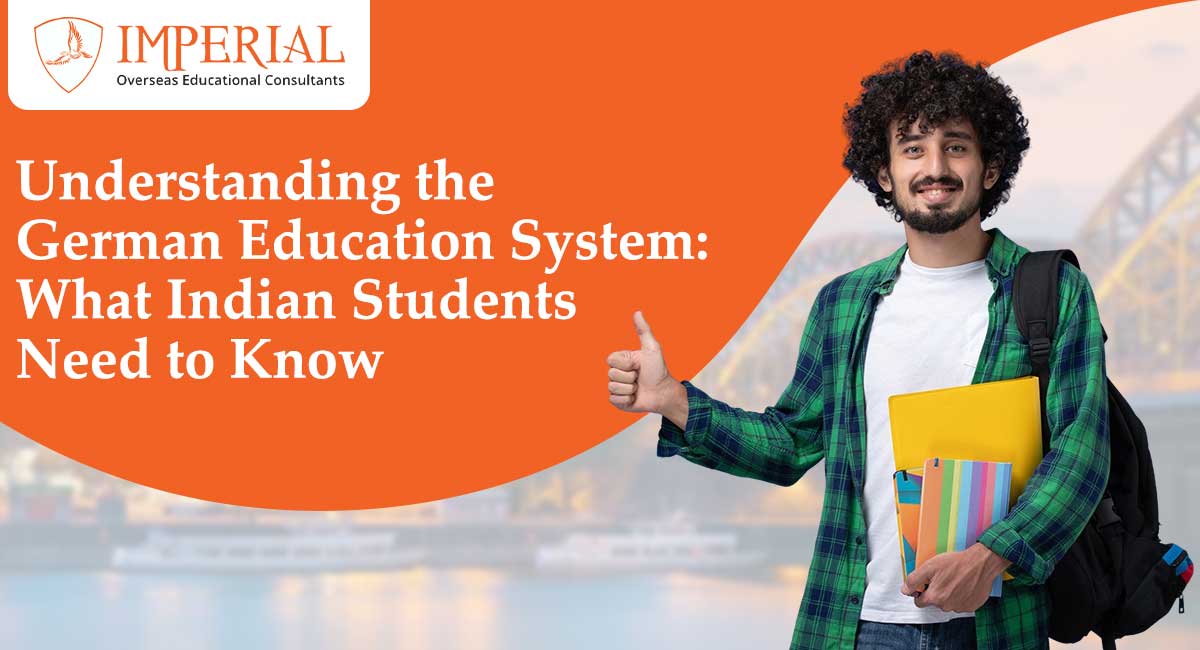
Understanding the German Education System: What Indian Students Need to Know
Germany is a top-notch option for Indian students who want to study abroad. It has a high standard of education, practical training, and exposure to international careers. Studying in Germany is only the first step. Start by exploring Germany as an option to study abroad and pause to learn about its educational system. This article highlights Germany as a prime destination to study abroad and what differentiates its educational system. And, it will also mention the role that education abroad consultants will play in your progression.
Why Study in Germany?
Germany has a well-developed higher education system with better academic standards that match the global curriculum.
- Furthermore, it emphasises that research and education are well-connected to its industry.
- In general, public institutions in Germany offer low or no tuition fees.
- Germany is the best choice for Indian students who want to study abroad because of its low costs.
The German Education System Models
The education system of Germany can be broadly described in five stages that cooperate with each other. They focus on helping students with personal and professional growth.
| Stage | Age Group | Purpose & Features |
| Pre Schooling | 0–6 years | An optional kindergarten for socialisation and early learning. |
| Elementary Education | 6–10 years | Grundschule (primary school) is compulsory, with a focus on foundational skills. |
| Secondary Education | 10–16/18 years | Multiple pathways: academic, vocational, or integrated schools. |
| Tertiary Education | 17/18+ years | Universities, universities of applied sciences, and vocational academies. |
| Continuing Education | All ages | Lifelong learning, skill upgrades, and adult education. |
Pre-School and Elementary Education
Germany places great importance on early learning. Here is how the system nurtures young minds before kindergarten and in primary school:
● Early Childhood:
Kindergarten is optional for children. However, a large majority of 3 and 4-year-olds will attend preschool. Typically, children will attend kindergarten to improve their social and cognitive development.
● Primary Education:
Children must attend Grundschule starting at age 6 for four years. During Grundschule, they will learn literacy, numeracy, and socialization skills. These skills will provide them with a firm fundamental base for their future learning.
Secondary Education: Multiple Pathways
At the end of primary school, teachers get off students to secondary schools. They look at past grades and future career choices.
● Gymnasium:
Students at Gymnasiums want to continue their education, and the curriculum supports this goal. Thanks to a strong focus on academics, languages, and sciences. Gymnasium students finish with an Abitur qualification for higher education.
● Realschule:
Activities and courses are a combination of theory and practice in education and students have the Mittlere Reife. Students then choose to begin an apprenticeship or continue with further vocational training.
● Hauptschule:
Activities and courses that help with the preparation for practical skills and apprenticeships. These activities support students in obtaining their Hauptschulabschluss.
● Gesamtschule:
A group of several schools, including some of the schools mentioned above. Education aims to help all students. It allows children to change paths based on their skills and backgrounds.
● Sonderschule:
Schools that offer special support for students with specific educational needs.
Tertiary Education: Universities and Beyond
Germany’s higher education system is famous for its academic integrity in the following ways:
- Universities focus on research and theory. They provide bachelor’s, master’s, and doctoral programs.
- Universities of Applied Sciences (Fachhochschule) focus on practical skills and offer internships and industry projects. This makes them great for students ready to jump into their careers.
- Public Vocational Academies (Berufsakademie) focus on academics and integrate real-world work experiences. Universities of applied sciences have similar dual student programs.
Most public universities charge little or no tuition, even for foreign students. Students are required to pay a fair fee for each semester. Direct-entry English programs are growing. This makes it easier than ever for Indian students to study in Germany.
Continuing Education: Lifelong Learning
Germany advances learning through adult education centers and professional development courses. This culture of continuous improvement fosters a work environment.
The Role of Education Abroad Consultants
German education has many options, which can be confusing. The complex requirements and detailed documentation add to the challenge. Education abroad consultants play an important part in:
- Evaluating your academic profile and recommending appropriate study programs.
- Helping with the application/visa process.
- Helping you to identify scholarships and funding opportunities.
- Preparing for a language test or an interview, if necessary.
- Providing you with an orientation before your departure.
When you work with education abroad consultants, you can make better decisions. They help you steer clear of mistakes and find great opportunities. This support boosts your success while studying in Germany.
Final Thoughts
Germany’s education system is special for its structure, ability to adapt, and focus on applied learning. Studying in Germany inspires excellence in Indian students and also opens doors to international career paths. Education abroad consultants help you focus on the amazing benefits of a global education. They help you reach your full potential. Therefore, you can enjoy better educational and career chances.
Ready to take the plunge towards a brighter future? Let Germany be the first step in your global journey.



